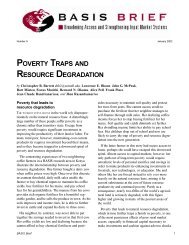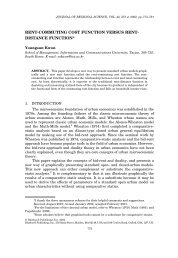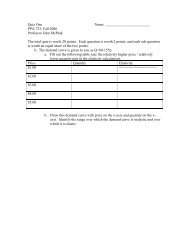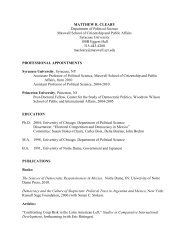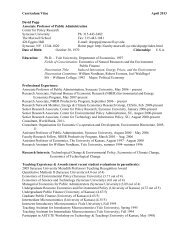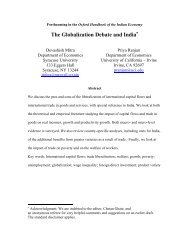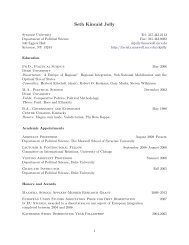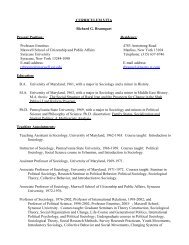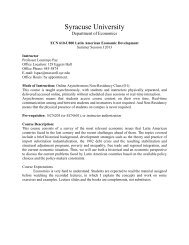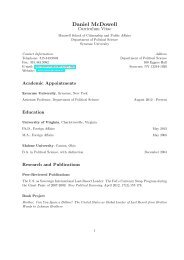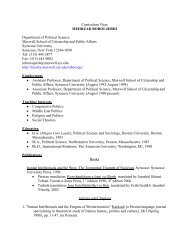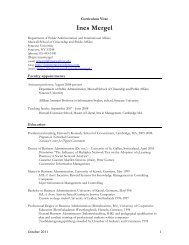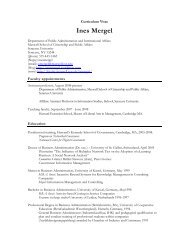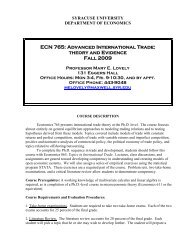The Anbar Awakening - Syracuse University
The Anbar Awakening - Syracuse University
The Anbar Awakening - Syracuse University
You also want an ePaper? Increase the reach of your titles
YUMPU automatically turns print PDFs into web optimized ePapers that Google loves.
Downloaded By: [<strong>Syracuse</strong> <strong>University</strong>] At: 18:08 28 August 2008<br />
<strong>The</strong> <strong>Anbar</strong> <strong>Awakening</strong><br />
Austin Long<br />
In late 2006, after several failed attempts and false starts, a tribal group-<br />
ing in Iraq’s restive province of <strong>Anbar</strong> allied with the United States and the<br />
central government of Iraq to fight ‘al-Qaeda in Mesopotamia’. <strong>The</strong> US alli-<br />
ance with this group, known as the <strong>Anbar</strong> Salvation Council (ASC), was<br />
widely hailed as a breakthrough both by members of the press and some<br />
officials in the US and Iraqi governments. 1 Certainly the ASC’s cooperation<br />
made <strong>Anbar</strong>’s capital Ramadi, previously one of the most violent cities in<br />
Iraq, much safer. Cooperation with the tribes of <strong>Anbar</strong> was not unprece-<br />
dented for Washington and Baghdad, but the alliance with the ASC was<br />
both more public and more dramatic than previous cooperation and saw<br />
significant linking of certain tribes and tribal leaders with the formal gov-<br />
ernment structure of the province. In 2007, the United States military began<br />
seeking to forge similar alliances across Iraq, making <strong>Anbar</strong> the model for<br />
the provision of internal security.<br />
Relying on tribes to provide security is not a new phenomenon for<br />
Iraq. <strong>The</strong> British did so in the 1920s; later Saddam Hussein became a<br />
master of using them to ensure the continuity of his rule, particularly<br />
once the formal Iraqi state and the Ba’ath Party withered in the 1980s and<br />
1990s. While the current attempt in <strong>Anbar</strong> is analogous, it is not identi-<br />
cal, and the differences suggest that it is likely to be less successful in the<br />
long run than Saddam’s effort. Moreover, the current attempt highlights<br />
tension between the means and ends of Iraq strategy. <strong>The</strong> tribal strategy is<br />
Austin Long is an Associate Political Scientist at the RAND Corporation.<br />
Survival | vol. 50 no. 2 | April–May 2008 | pp. 67–94 DOI 10.1080/00396330802034283



